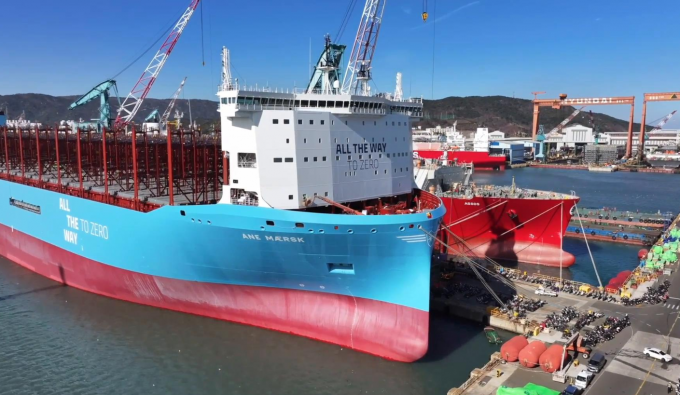Global shipping to shift as Europe and southeast Asia fill US gap in China trade
China is cultivating trade ties with Southeast Asia and Europe in the face of intensifying ...

The world’s first large methanol-enabled container vessel has been named Ane Mærsk at a ceremony in the HD Hyundai Heavy Industries shipyard in Ulsan, South Korea.
The vessel is named after Ane Mærsk Mc-Kinney Uggla, chair of the AP Møller Foundation and AP Møller Holding. ...
CMA CGM South Korean staff strike over bonuses after bumper 2024 profit
MSC switches two more Asia-Europe port calls from congested Antwerp
CMA airline returns two freighters, while ANA takeover of NCA looms
Nightmare for Bangladeshi exporters as congestion and tariffs bite
Tradelanes: Export boom in Indian sub-continent triggers rise in airfreight rates
Carriers introduce surcharges as congestion builds at African ports
Ports and supply chain operators weigh in on funding for CPB
Front-loading frenzy has made traditional H2 peak season 'unlikely'

Comment on this article